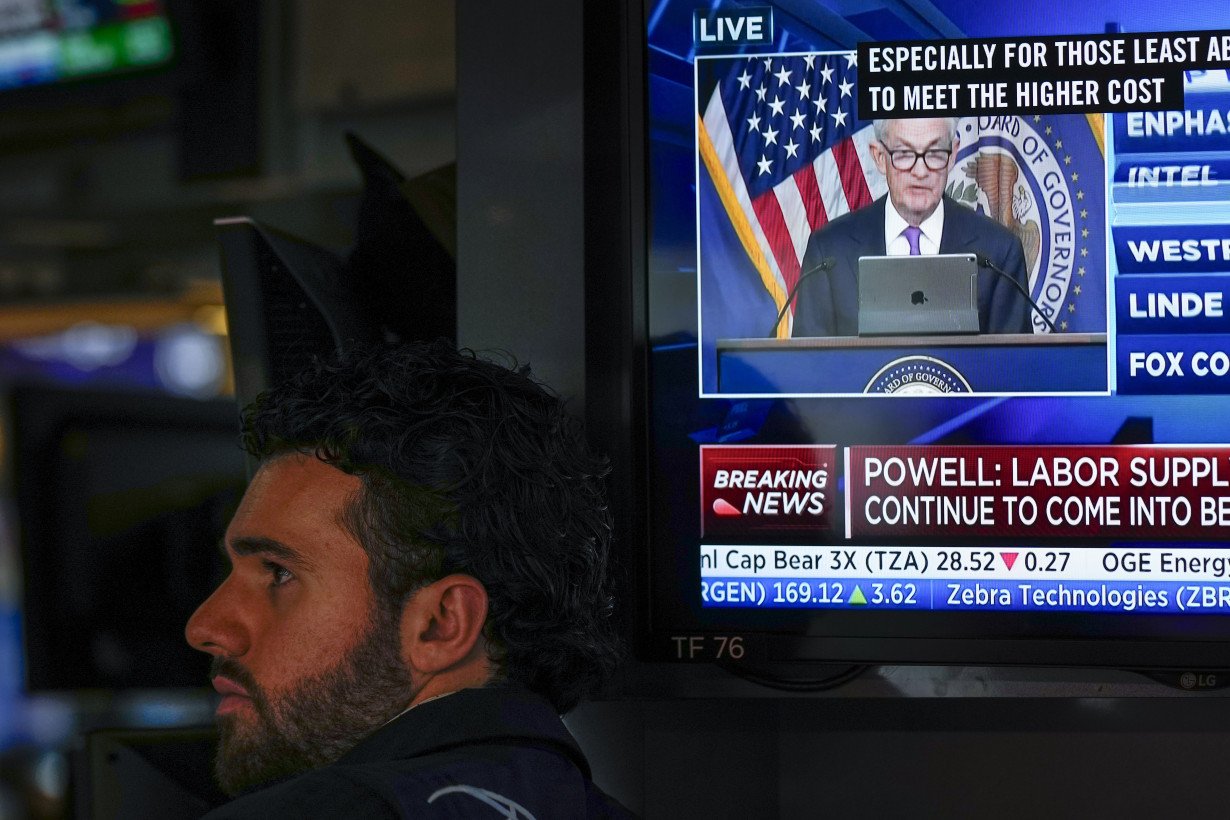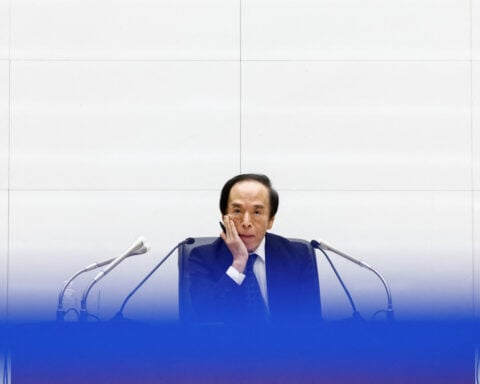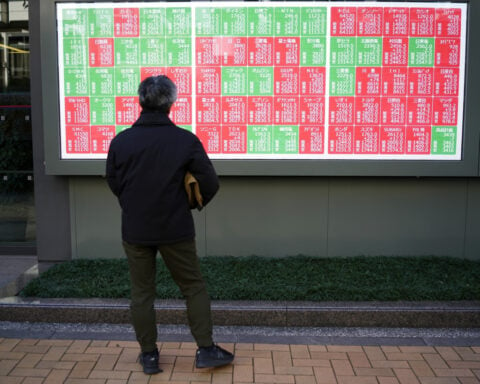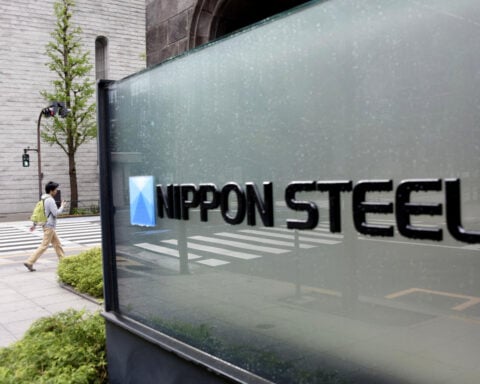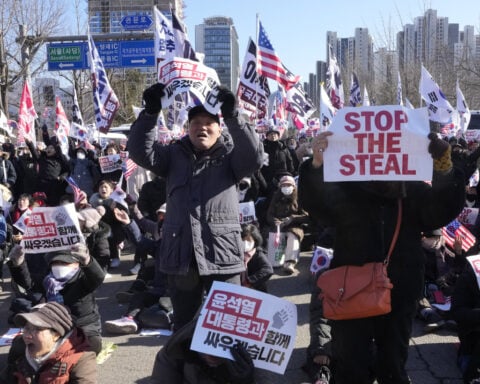Asian shares are lower, tracking a slump on Wall Street after the Federal Reserve said it may not cut interest rates next year by as much as it earlier thought.
Most regional markets fell more than 1%. U.S. futures and oil prices also declined.
U.S. stocks slumped Wednesday after the Federal Reserve said it may not cut interest rates next year by as much as it earlier thought, regardless of how much Wall Street wants it.
The Fed held its main interest rate steady at its highest level in more than two decades, as was expected. Officials also indicated they may raise the federal funds rate once more this year, as they try to get inflation down to a 2% target. The Fed's chair, Jerome Powell, said it’s close to hitting the peak on rates, if not there already.
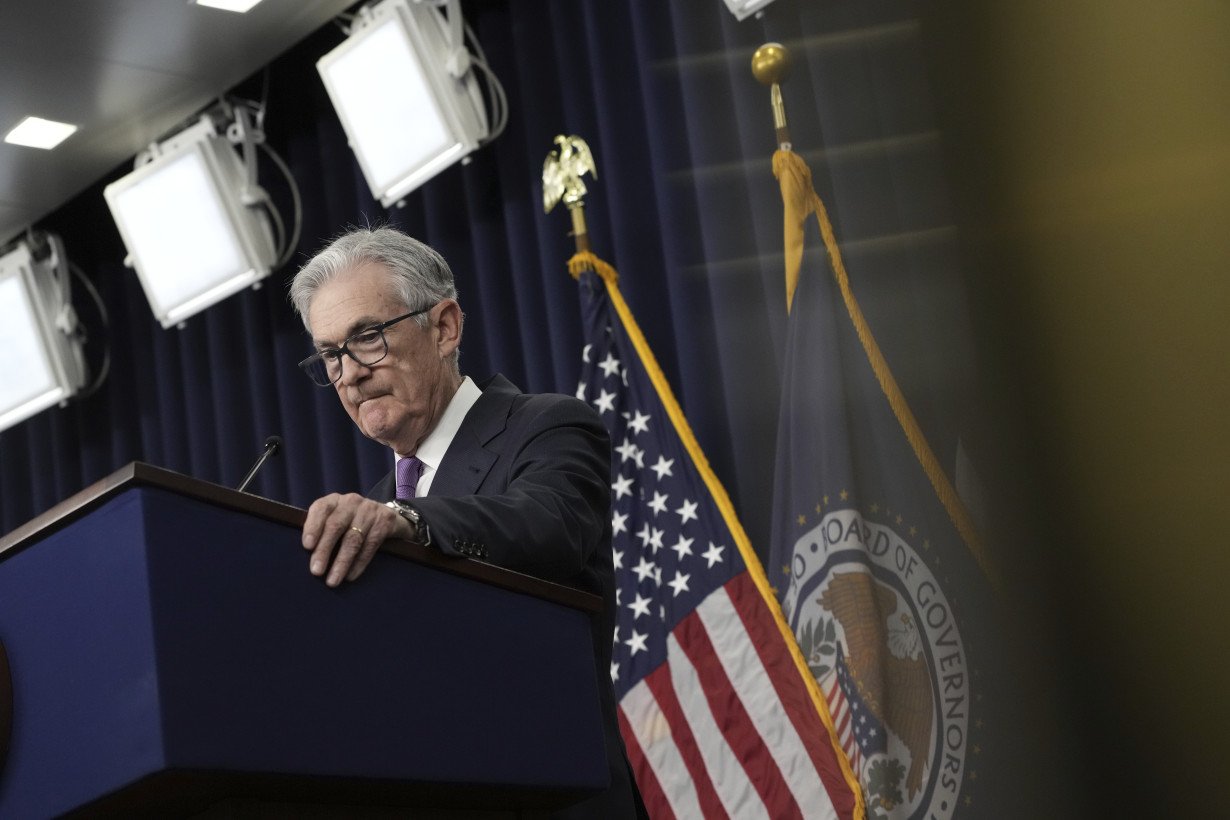
“Moving forward, traders will scrutinize every piece of data from the US, with a particular emphasis on inflationary indicators, to gauge the potential for prolonged high rates,” Anderson Alves of ActivTrades said in a commentary.
In Asian trading, Hong Kong's Hang Seng lost 1.3% to 17,662.78 and the Shanghai Composite index gave up 0.5%, to 3,093.70.
Tokyo's Nikkei 225 was off 1.1% at 32,647.72, while in Seoul the Kospi shed 1.4% to 2,524.80. Australia's S&P/ASX 200 slipped 1.2% to 7,075.40.
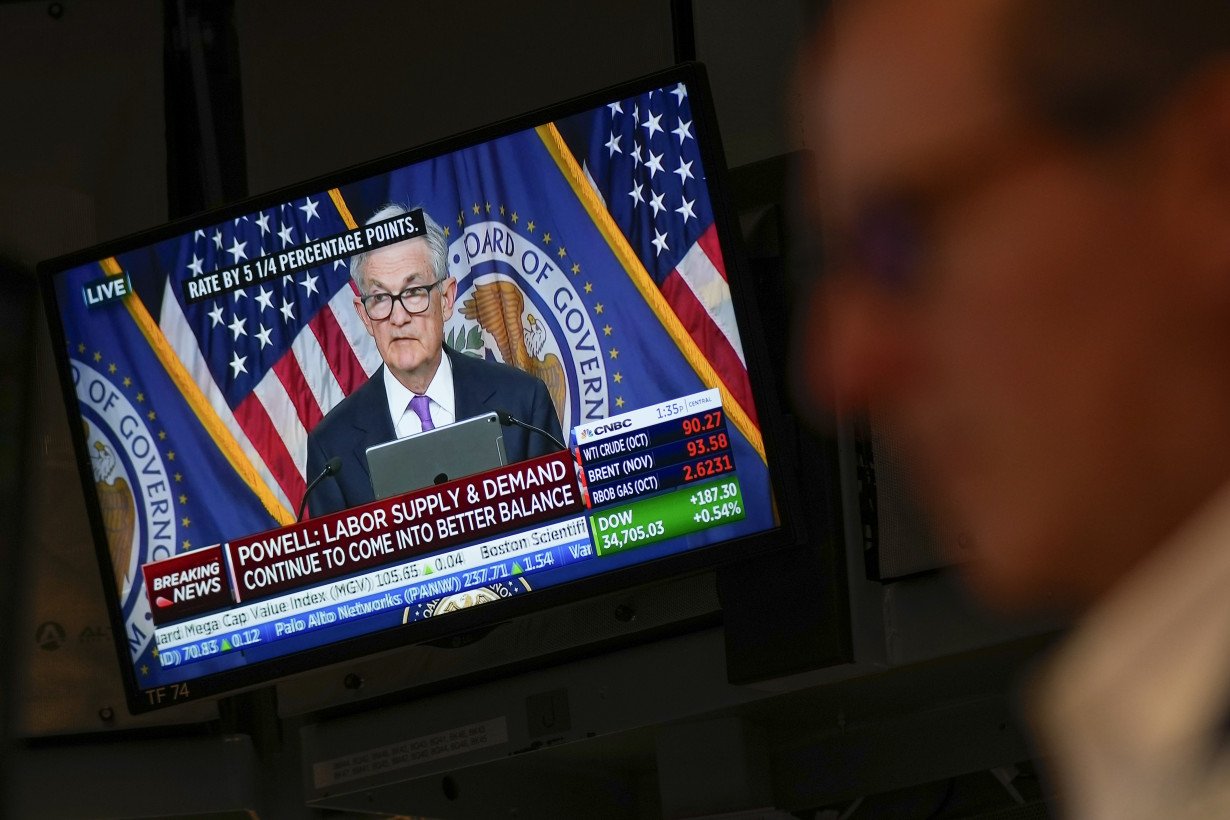
Shares of electronics and energy giant Toshiba Corp. gained 0.2% Thursday after it announced that a 2 trillion yen ($14 billion) tender offer for the troubled electronics and energy giant by a Japanese consortium has been completed, clearing the way for it to be delisted.
New Zealand's benchmark stock index edged 0.1% higher. Figures released Thursday by Statistics New Zealand indicated the economy expanded at a 3.2% annual pace in the April-June quarter. In quarterly terms, GDP rose by 0.9% . Finance Minister Grant Robertson said the economy was turning a corner and growing at twice the rate predicted by economists.
The figures come three weeks before a general election and on the same day that dairy exporter Fonterra reported a 170% increase in its annual after-tax profit to 1.6 billion New Zealand dollars ($948 million). Fonterra warned, however, of falling milk prices due to reduced demand for milk powder from countries like China. Its shares jumped 3.9%.
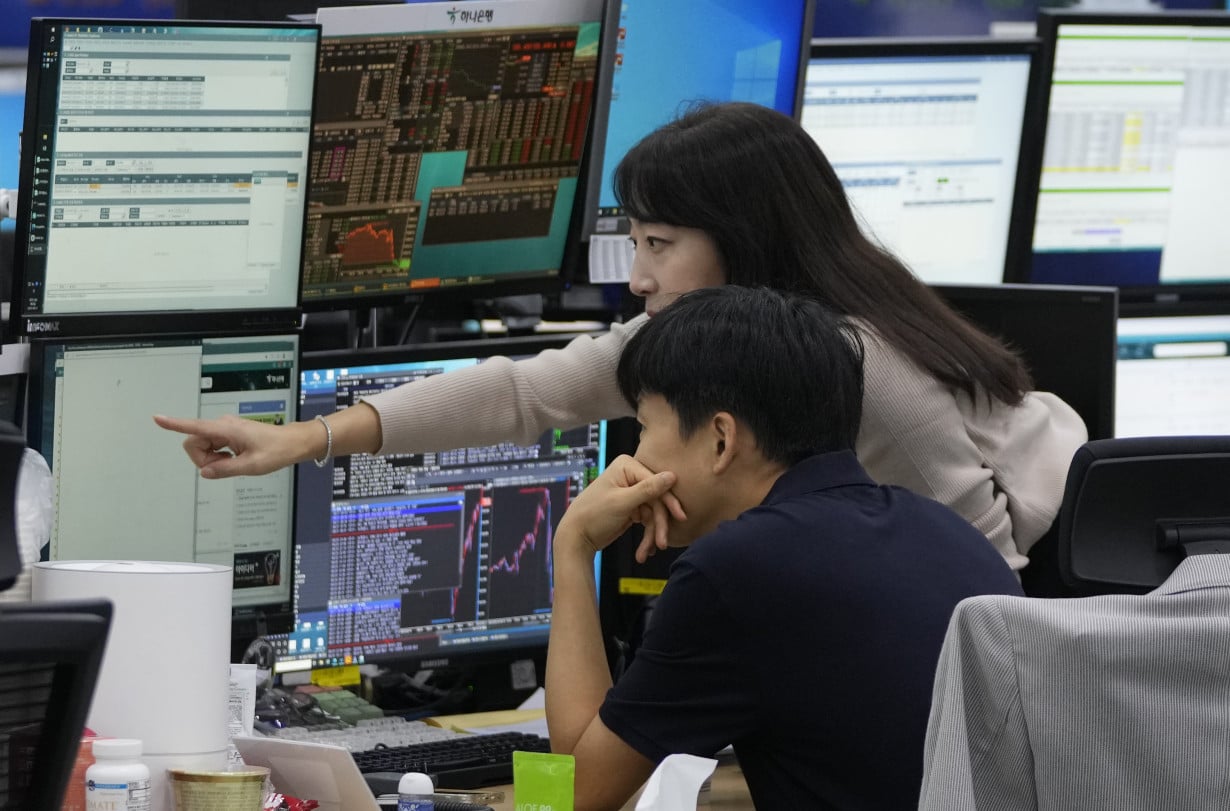
Wednesday on Wall Street, the S&P 500 fell 0.9% to 4,402.20. The Dow Jones Industrial Average 0.2% to 34,440.88 and the Nasdaq composite dropped 1.5% to 13,469.13.
Fed officials suggested they may cut rates in 2024 by only half a percentage point from where they're expected to end this year. That's less than the full percentage point of cuts they were penciling in as of June.
Powell, though, stressed that forecasts about where rates and other indicators are heading could change as more data come in.
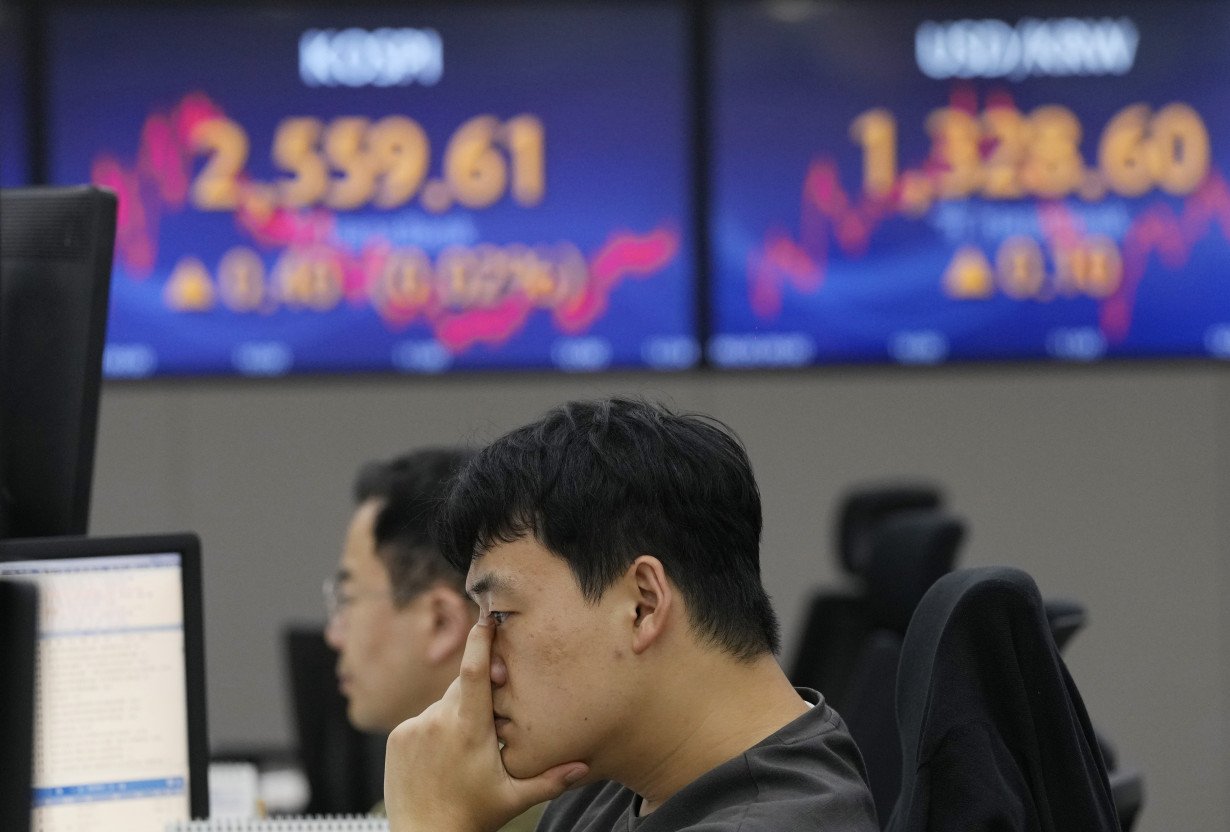
“Forecasters are a humble lot, with much to be humble about,” Powell said.
Treasury yields rose in the bond market after the Fed released its projections.
The yield on the 10-year Treasury rose to 4.39% from less than 4.32% shortly before the Fed's announcement. It's back to where it was in 2007.
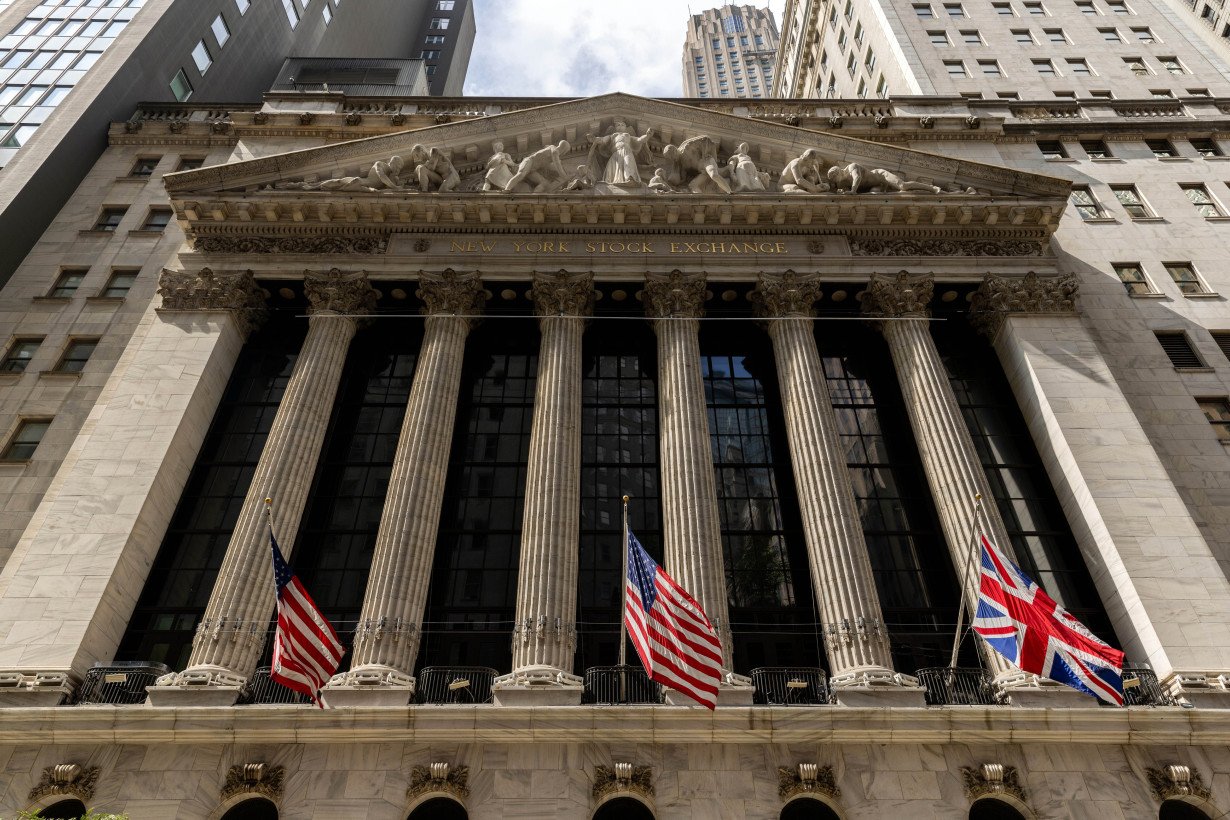
The two-year Treasury yield, which more closely tracks expectations for Fed action, jumped to 5.18% from 5.04% shortly before the Fed's announcement.
High rates hurt prices for all kinds of investments, and high-growth companies are typically among the hardest hit. Big Tech stocks were the heaviest weights on the S&P 500, and Microsoft, Apple and Nvidia all fell at least 2%.
Stocks of several companies that recently sold their stock on public markets for the first time also fell. Instacart dropped 10.7% as it gave back some of its gains from its first day of trading as a public stock.
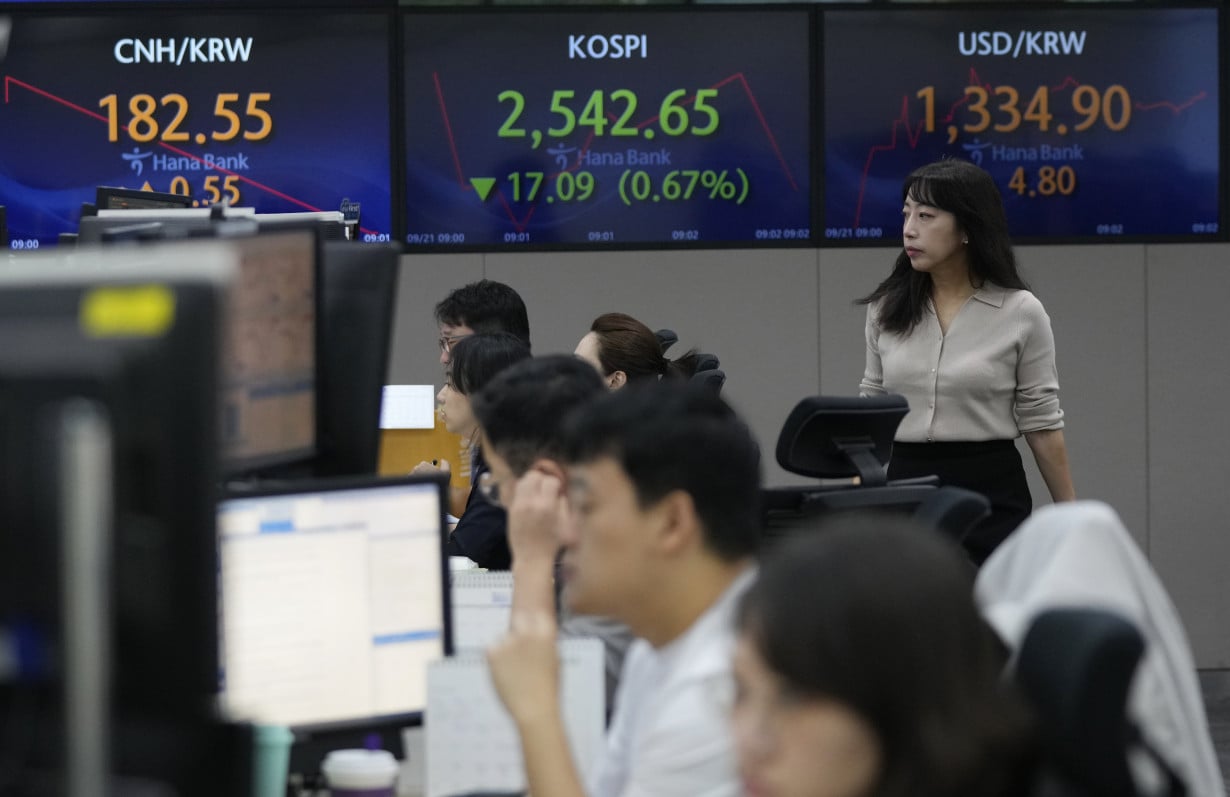
Arm Holdings, whose shares debuted last week, lost 4.1%.
Shares of Klaviyo, which helps advertisers market over email and text messaging, rose 9.2% in their first day of trading.
In other trading Thursday, U.S. benchmark crude oil lost 76 cents to $88.90 a barrel in electronic trading on the New York Mercantile Exchange. It gained 82 cents on Wednesday.
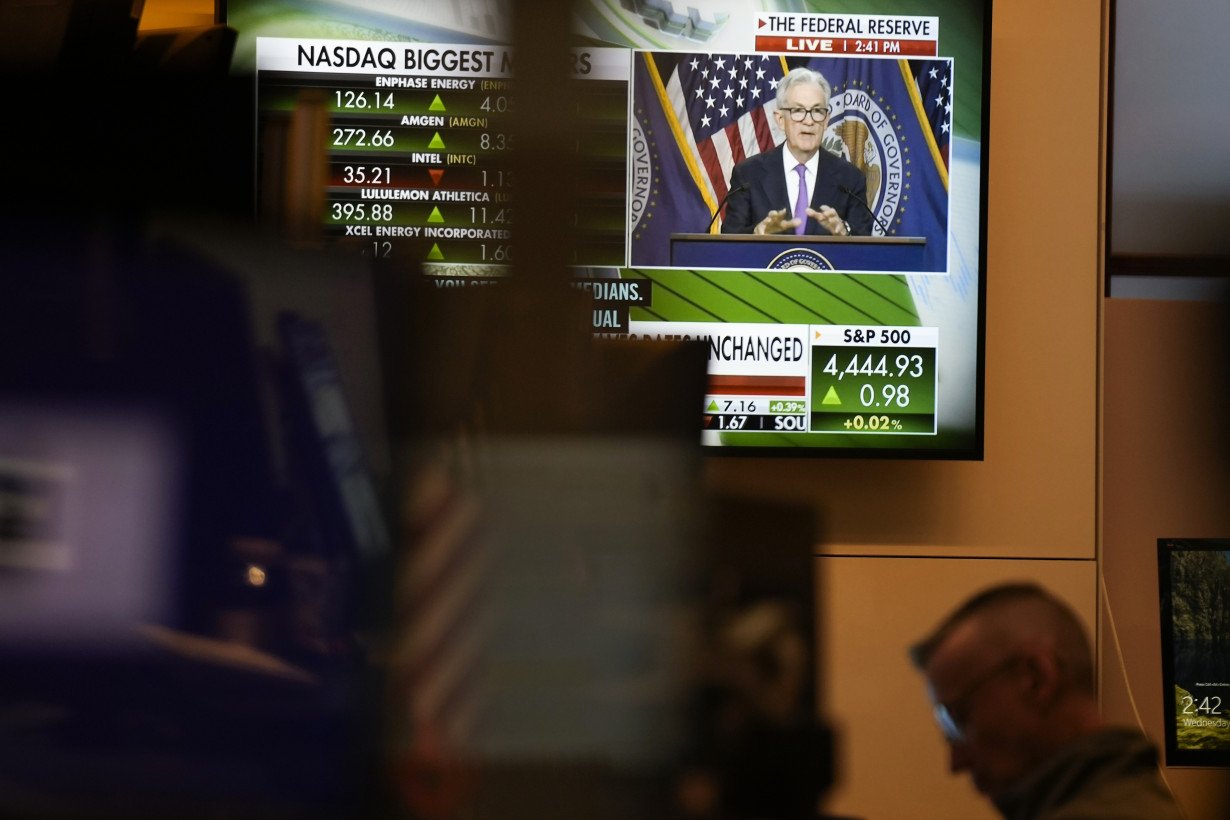
Brent crude, the pricing basis for international trading, declined 73 cents to $92.80.
The U.S. dollar slipped to 148.28 Japanese yen from 148.35 yen. The euro weakened to $1.0627 from $1.0661.
___
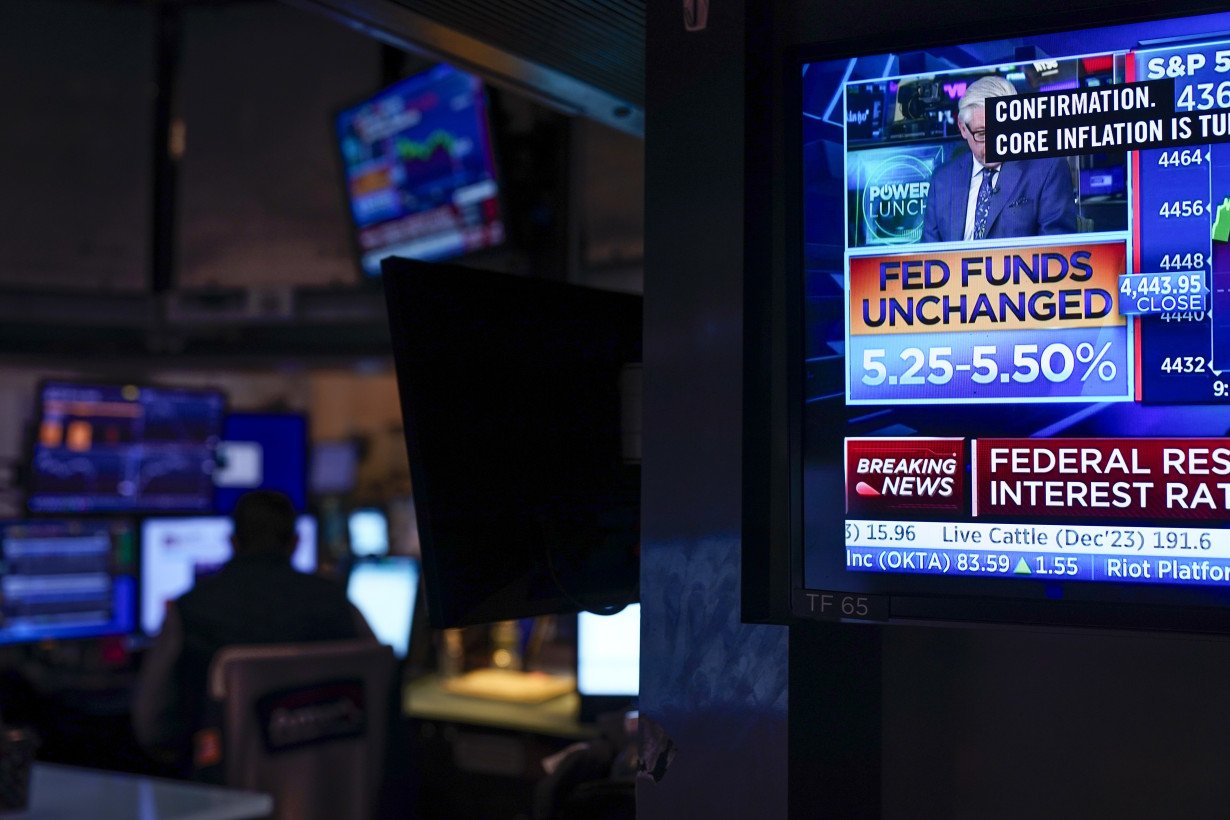
AP Writer Nick Perry in Wellington, New Zealand, and AP Business Writer Stan Choe contributed.
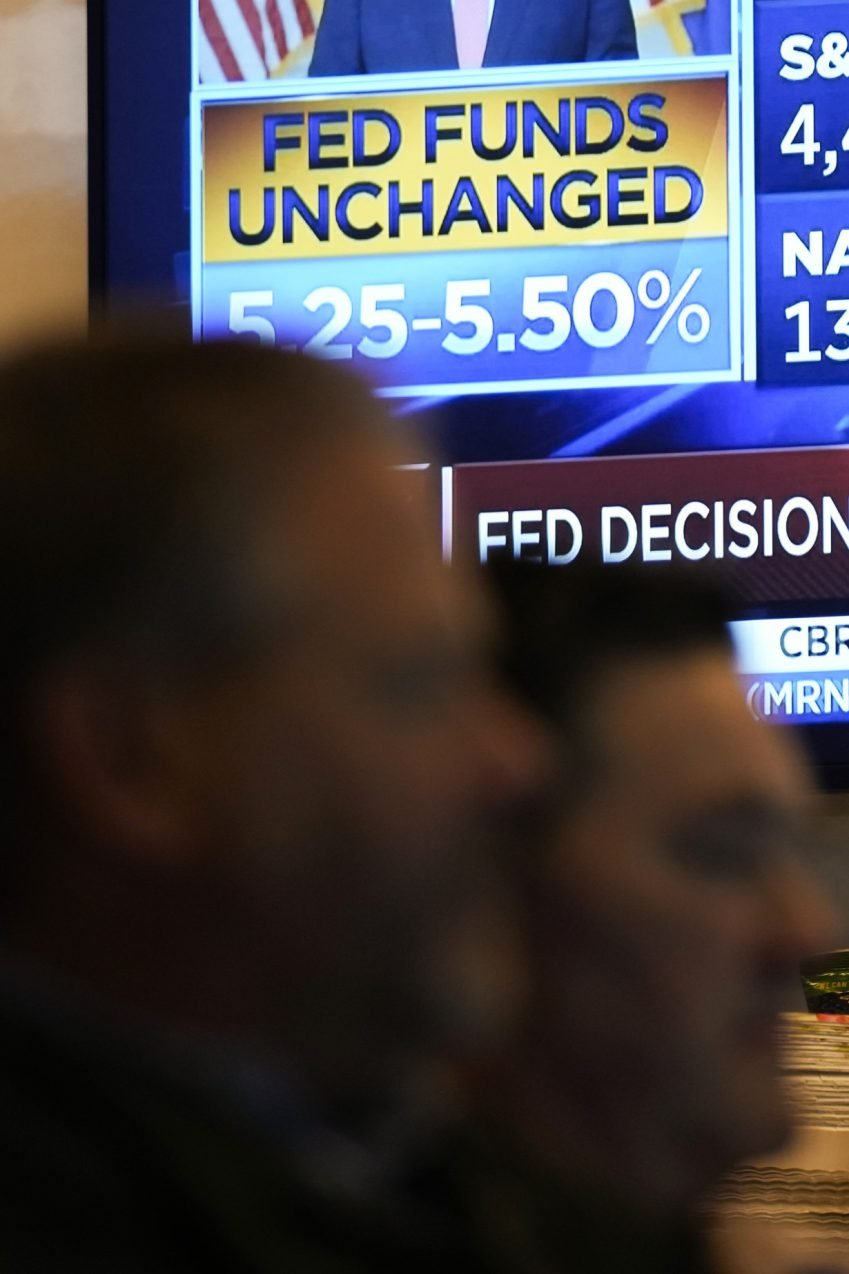

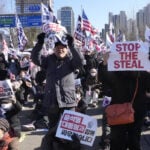 A look at the events that led up to the detention of South Korean President Yoon Suk Yeol
A look at the events that led up to the detention of South Korean President Yoon Suk Yeol
 The long struggle to establish Martin Luther King Jr. Day
The long struggle to establish Martin Luther King Jr. Day
 Two private lunar landers head toward the moon in a roundabout journey
Two private lunar landers head toward the moon in a roundabout journey
 Trump's Greenland bid stirs debate in China about what to do with Taiwan
Trump's Greenland bid stirs debate in China about what to do with Taiwan
 TikTok preparing for U.S. shut-off on Sunday, The Information reports
TikTok preparing for U.S. shut-off on Sunday, The Information reports
 Japan's Makino Milling requests changes to unsolicited bid from Nidec
Japan's Makino Milling requests changes to unsolicited bid from Nidec
 As Los Angeles burns, Hollywood's Oscar season turns into a pledge drive
As Los Angeles burns, Hollywood's Oscar season turns into a pledge drive
 As fires ravage Los Angeles, Tiger Woods isn't sure what will happen with Riviera tournament
As fires ravage Los Angeles, Tiger Woods isn't sure what will happen with Riviera tournament
 Antetokounmpo gets 50th career triple-double as Bucks win 130-115 to end Kings' 7-game win streak
Antetokounmpo gets 50th career triple-double as Bucks win 130-115 to end Kings' 7-game win streak
